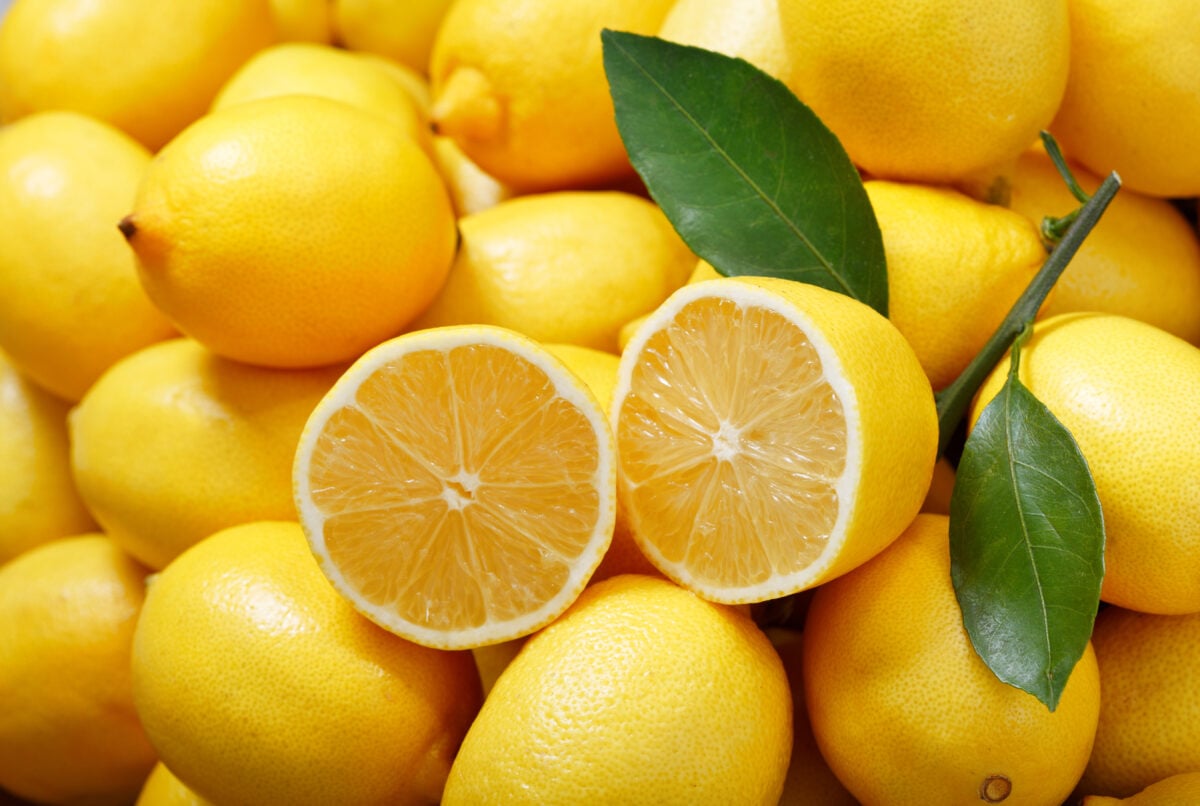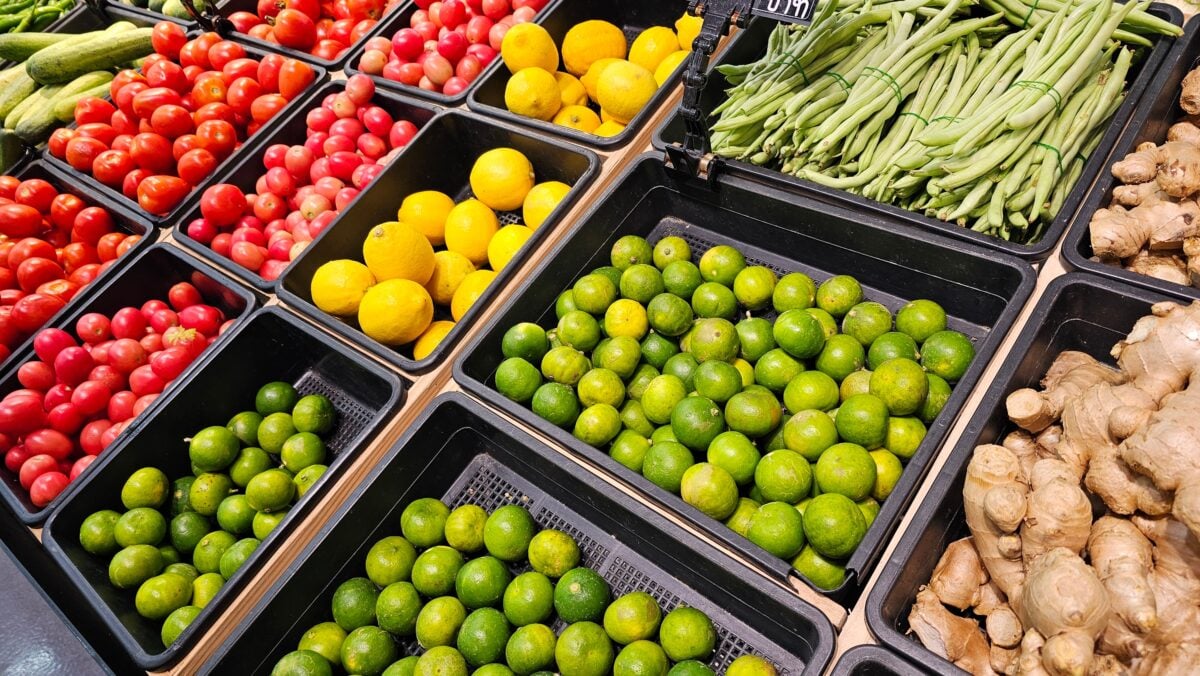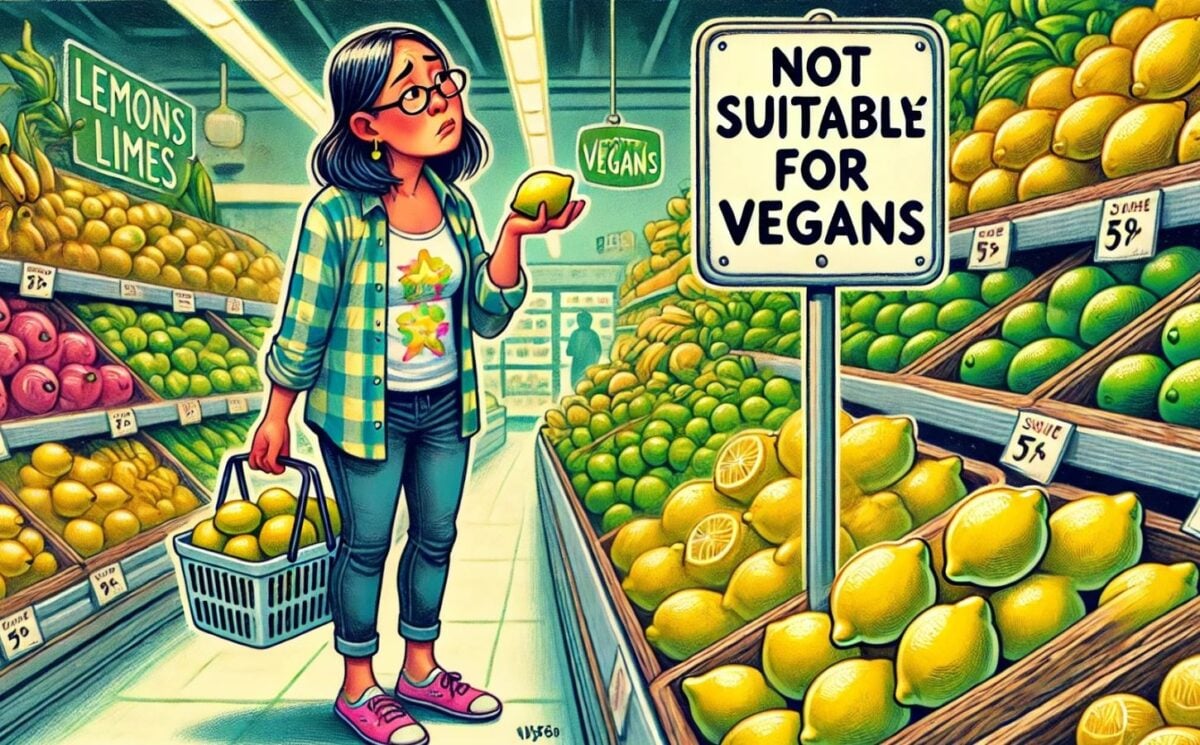Back in 2022, UK supermarket Tesco came under fire after adding warning labels to its lemons, limes, and oranges stating that they weren’t vegan-friendly.
Read more: Is Coconut Milk Ethical? What To Know About Monkey Exploitation
The incident caused a huge stir, and it was widely covered in the media. For some people, this was the first time they’d considered that seemingly innocuous citrus fruits may not be suitable for an animal-free lifestyle, and media coverage led to some panic in the vegan community.
Then, in April 2024, the subject sparked headlines once again after pub chain Wetherspoons put up a sign stating that it “couldn’t guarantee” its fruit garnishes were vegan. In a statement sent to Plant Based News, a spokesperson said that the chain normally sources them from a “vegan-friendly supplier” but that it was using a new supplier for a “limited time” across all pubs. “We cannot, with the new supplier, guarantee that the limes are vegan friendly and as a result have put up the notice in our pubs,” the spokesperson added.
Lemons, limes, and oranges are hugely popular fruits eaten all over the world, and are commonly eaten by vegans in a wide variety of food and drink recipes. The idea that they may not be vegan may therefore come as a huge shock – but is there more than meets the eye? Here’s everything you need to know about eating lemons and limes as a vegan.
Read more: Is Red Bull Vegan? The Debate Explained
Are lemons, limes, and oranges vegan?
The good news is that lemons, limes, and oranges, just like all fruits and vegetables, are naturally vegan. Non-vegan foods are those that derive from animals. Citrus fruits, like all plants, are often fine to eat on a plant-based diet.
But there is more to the story. The reason why some businesses are labeling lemons and limes as non-vegan is because some are coated with non-vegan products, notably beeswax and shellac.
In the case of Tesco, shellac was used for lemons and limes, while beeswax was used for oranges. These ingredients are products of animal exploitation, meaning they are not compatible with a vegan lifestyle.
The problem with beeswax and shellac

The process of beeswax production begins within the beehive, where “worker bees” secrete it from glands on their abdomens. The bees use this wax to build honeycomb, which serves as the structure for their colonies. In the honeycomb, bees store honey and pollen, and it also acts as the nursery for their larvae. When beekeepers harvest honey, they often remove parts of the honeycomb, which are then melted down to extract beeswax. Since beeswax production involves the exploitation of bees and their natural resources, it does not align with vegan principles that oppose the use of animal products and the exploitation of animals for human purposes.
Shellac is derived from the secretions of the female lac bug. These insects, native to forests in Thailand and India, secrete a resin as they move down tree branches, primarily to form tunnels and cocoon themselves for protection. This resin, known as lac, is harvested by scraping it off the trees where these bugs reside. The resin is melted, strained, and dried into flakes, which are then dissolved in alcohol to produce liquid shellac. It’s estimated that around 100,000 lac bugs are used to make a single pound of shellac. As well as food glazes, shellac is used in cosmetics and wood finishes. Since shellac production involves the exploitation of insects, it is not considered vegan.
Why lemons and limes contain non-vegan ingredients
Some manufacturers use these non-vegan coatings post harvest in order to preserve the fruit. The coating can help lock in moisture, meaning they have a longer shelf life and stay juicier for longer. The shiny coating that these substances give the fruit is also thought to make them look more aesthetically pleasing.
Are any lemons and limes vegan?

If you’re a vegan and a fan of lemons, limes, and oranges, there’s no need to panic. It’s not inevitable that these fruits feature beeswax and shellac, and it’s very possible to avoid buying the ones that do while shopping.
An easy way to do this is to opt for organic fruits, which don’t use these substances. Not all packaging will state if they use shellac or beeswax, but organic fruits won’t use these coatings. Some non-organic brands may also use vegan waxes named “polyethylene wax” or “carnauba wax.” You should contact the supermarket or fruit company directly if you want information on what sort of wax specific fruits use. Alternatively, you can look out for fruits that are labeled as “unwaxed.” Following the furore about its fruit, Tesco said it was working with its suppliers to seek alternatives to both beeswax and shellac, and many supermarkets offer unwaxed fruits.
If you’re a vegan who’s eaten lemons and limes that may have contained beeswax or shellac, it’s important not to panic. We live in a non-vegan world, and many people have no idea that non-vegan ingredients can be used in these fruits. Accidental slip ups happen to everyone from time to time, and the best thing you can do is research which of your local supermarket’s fruits are animal-free for next time.
Read more: Are Starbursts Vegan, And Do They Contain Gelatin?






